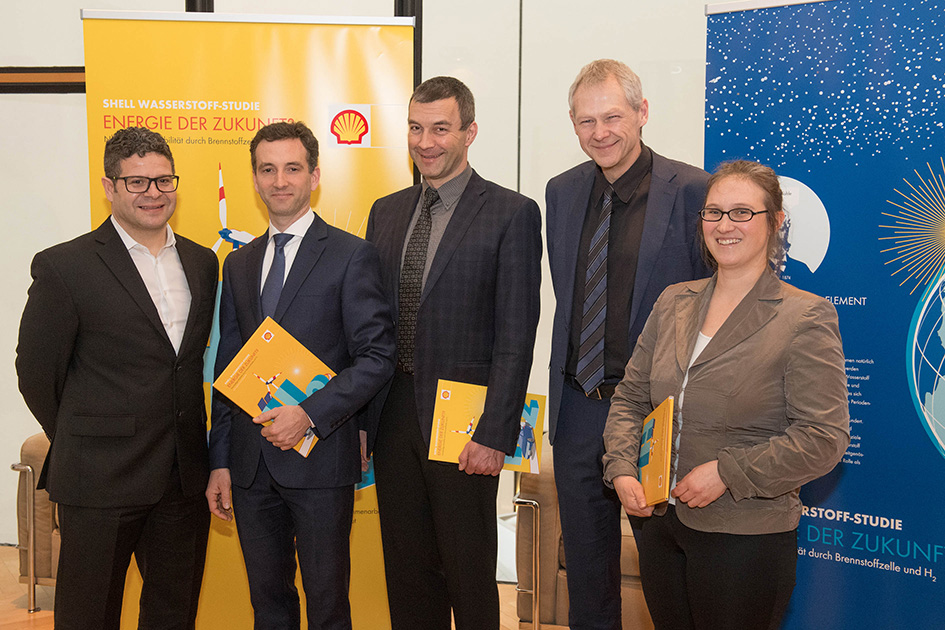Hydrogen's Growing Importance in the Energy Mix
Shell Hydrogen-Study published

Shell Hydrogen-Study published

In 2050, 113 million fuel cell electric vehicles could save up to 68 million tons of fuel and almost 200 million tons of carbon emissions. As such, they could make a significant contribution to reducing energy consumption and greenhouse gas emissions in the transport sector. That is the conclusions reached in the Shell Hydrogen-Study entitled "Energy of the future? Sustainable mobility through fuel cells and H2", which was conducted by the Wuppertal Institute together and on behalf of Shell and officially published in Berlin today.
Experience has shown that the technology behind the production and application of hydrogen has made huge progress in recent years, and not only in the are of passenger cars, says Dr. Jörg Adolf, Chief Economist at Shell Deutschland and project lead of the study.
The technology at the heart of hydrogen's use as an energy source is the fuel cell, which is significantly more efficient than heat engines. Hydrogen has a high specific energy content and by far the highest energy density (per kilogram) of all the energy carriers used today. Since it usually only exists on earth as part of a compound, it has to be produced via a specific process. The most important primary energy carrier for the production of hydrogen is currently natural gas. "We believe that hydrogen produced via electrolysis using electricity from renewable sources of energy will play an important role in the future", says Prof. Dr. Manfred Fischedick, vice president of the Wuppertal Institute. This will also be necessary in order to take advantage of hydrogen's potential environmental benefits. Because in addition to considerably higher efficiency levels compared to passenger cars with combustion engines, hydrogen-powered fuel cell electric vehicles also have the advantage of being able to significantly contribute to reducing greenhouse gas emissions on account of the climate-friendly production method.
Some questions remain: Is hydrogen the one energy source or at least one of the sources of the future? And if so, what needs to change to make hydrogen one of the leading energy sources of our energy system? The study answers these questions among others.
It is available for free download in German. An English translation will be published in June.

